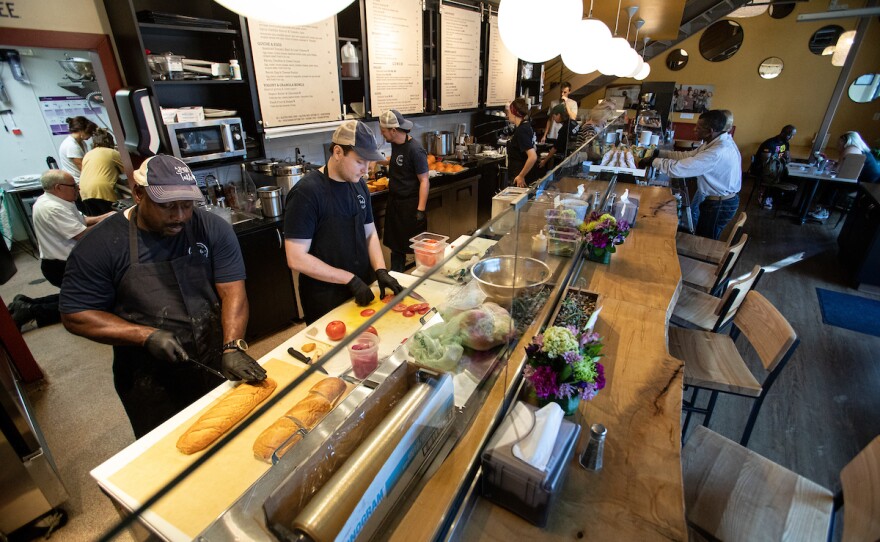Maggie Kane exudes an infectious energy. That's especially true when she talks about her passion of caring for those less fortunate than herself.
She's taken that energy and passion and rolled them together in A Place at the Table, Raleigh's first pay-what-you-can café.
"Food is our tool towards creating community, towards bringing people together," she says. "But what I saw was that restaurants are for an exclusive group of people."
Not so at her restaurant. At the café in the warehouse district on Hargett Street, people can get a meal for full price; or for less than full price; or even for free, by volunteering to work, instead of covering the meal with cash.
To make the model work, the restaurant saves some money on the cost of cleaning crews or other jobs covered by volunteers working for food. Also, some people pay more for their meal, in some cases rounding the suggested price up to $10 or $20, or by tipping. Of course, some people also donate to the cause.

The model has benefitted people like Christopher Judd, who has volunteered in almost every role the café has to offer. "Mostly dishes, serving, whatever needs to be done," he says. "It's a real open and friendly environment. So it's easy."
He heard about the café from a business owner just up the street. "I was going from business to business trying to do any odd jobs because I'd rather work for it than beg for it. And they said A Place at the Table always needs help. So I came over here and I've been like family ever since."

Kane grew up in north Raleigh. She graduated from Wakefield High School and then from N.C. State University with a degree in international relations and Italian. "I thought I'd be traveling the world right now," she says. "Thought I'd be working for an embassy or teaching English abroad in who knows what country. But here I am."
She quickly found her love for helping those less fortunate than her and started working with people experiencing homelessness. It stood out to her that some people were not being shown dignity, especially during meal times, and juxtaposed that with how she was treated when she would eat out a restaurant. "I saw that I could go anywhere I wanted. And be served," she says. "I saw that the haves were going one way, and the have-nots were going another way."
So she launched A Place at the Table. It's not the first of its kind – Panera and others have – but it has been successful enough that not only has it maintained a positive balance sheet, but one that's good enough to allow for expansion. The Raleigh ąĎÉńapp and Observer named Kane a .
"We always say our main mission is to build community. So whether we are eating together or volunteering together, we are building community," says Kane. "We say that we will never be able to end hunger. It's not our main mission. But we can surely provide dignity and choice for as many people as possible. That whoever you are, no matter who you are, when you walk in, you feel welcome. You feel included. You feel like you have a choice. You feel like you are about to have a dignified dining experience."








